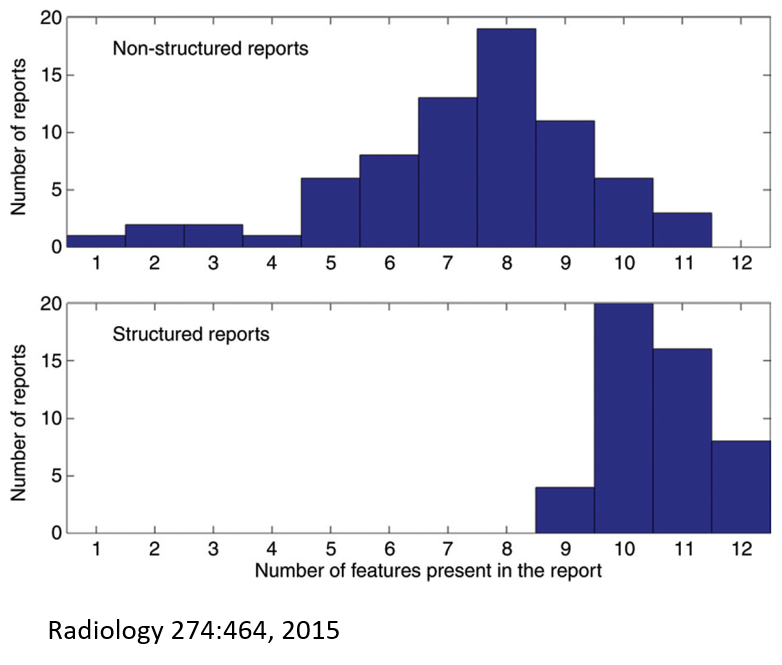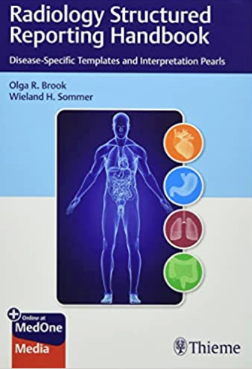Standard radiology reports have relied upon the description and interpretation of organ-specific findings. In recent years, reports have been shifting towards structured reporting based on disease-specific information.
We investigated the utility of disease-specific reporting structures for radiology reports both in terms of quantitative metrics of information content and the ease of diagnosis and/or therapeutic planning based on the reports.
We demonstrated that with structured reporting of pancreatic multiphasic CT (for assessment of vascular involvement of the tumor and surrounding tissues), a significantly higher number of relevant features were present in the report with structured vs non-structured reports, providing superior evaluation of pancreatic cancer and facilitating surgical planning.

Of note, surgeons were more confident regarding decisions about tumor resectability when they reviewed structured reports before reviewing multiphasic CT images.
Further studies by our group quantified the advantages of disease-specific reporting within the evaluation of fibroids and adnexal masses. In particular, structured disease-specific reports for fibroids contained more key features compared with narrative reports, and gynecologists found the structured reports to be easier to understand and more useful for surgical planning (European Radiology 28:3009, 2018).
Further, in reporting and evaluation of adnexal masses, disease-specific structured reporting was found to be superior to general structured reporting both in terms of key feature reporting and utility for surgical planning (European Radiology 29:4851, 2019).
These reports validated the use of disease-specific radiology reports for the improvement of identification of key image features as well as the utility of the reports to the referring physician for treatment planning.
The findings support a potential major shift in the standard practice of radiology.
This motivated the development of a resource for the radiology community at large to aid in the implementation of the practice of disease-specific reporting. We subsequently published a book with these concepts, including downloadable disease-specific templates for ease of implementation.
Brook OR, Sommer W, editors. Radiology Structured Reporting Handbook: Disease-Specific Templates and Interpretation Pearls. Thieme, NY, NY; 2021.

